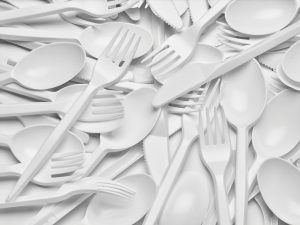
Canada’s single-use plastics ban begins to take effect
Canadian Plastics
Canadian Plastics Packaging Plastics ProcessesThe six categories of single-use plastic include checkout bags, cutlery, foodservice ware made from hard-to-recycle plastics, ring carriers, stir sticks, and straws.

Photo Credit: Adobe Stock/Lumos sp
The Canadian federal government’s ban on the six common categories of single-use plastic items starts to take effect on Dec. 20.
The government will phase-in the bans, starting on Dec. 20, with the prohibition on the import and manufacture of single-use plastic checkout bags, cutlery, foodservice ware made from problematic plastics, stir sticks, and straws; the prohibition on the sale of these items will come into force in December 2023.
In June 2023, the manufacture and import of ring carriers in Canada will be prohibited and the sale of these items will be prohibited in June 2024.
Exceptions to the ban on straws will allow single-use plastic flexible straws to remain available for people in Canada who require them for medical or accessibility reasons. This includes for use at home, in social settings, or in healthcare settings, such as hospitals and long‑term care facilities. All other types of single-use plastic straws will be prohibited.
By the end of 2025, the government will also prohibit the manufacture and import for the purposes of export of all six categories of single-use plastics, making Canada the first among peer jurisdictions to do so internationally. “These phased timelines recognize the complexity associated with retooling manufacturing lines for these products,” the government said in a Dec. 17 statement.
Several plastic industry associations have gone on record as being opposed to the bans. In June, the Chemistry Industry Association of Canada (CIAC) noted that the bans won’t solve the overall problem of plastics pollution and the management of post-consumer plastics. “Rather than bans, we need to invest in recycling infrastructure and innovation, including infrastructure to manage compostables, to harness the $8 billion value of plastics that are currently sent to landfill and recirculate them in the economy,” CIAC officials said.
And the Washington, D.C.-based Plastics Industry Association pointed out that the bans will cause economic hardship on both sides of the U.S.-Canada border. “The lack of a comprehensive economic analysis in imposing such sweeping regulations is really frustrating,” said president and CEO Matt. “There will be plastics companies that have to cut jobs or outright close facilities because of this action. [And] banning these products will increase costs to businesses and consumers in the U.S. and Canada, while doing nothing to significantly reduce litter or waste.”
